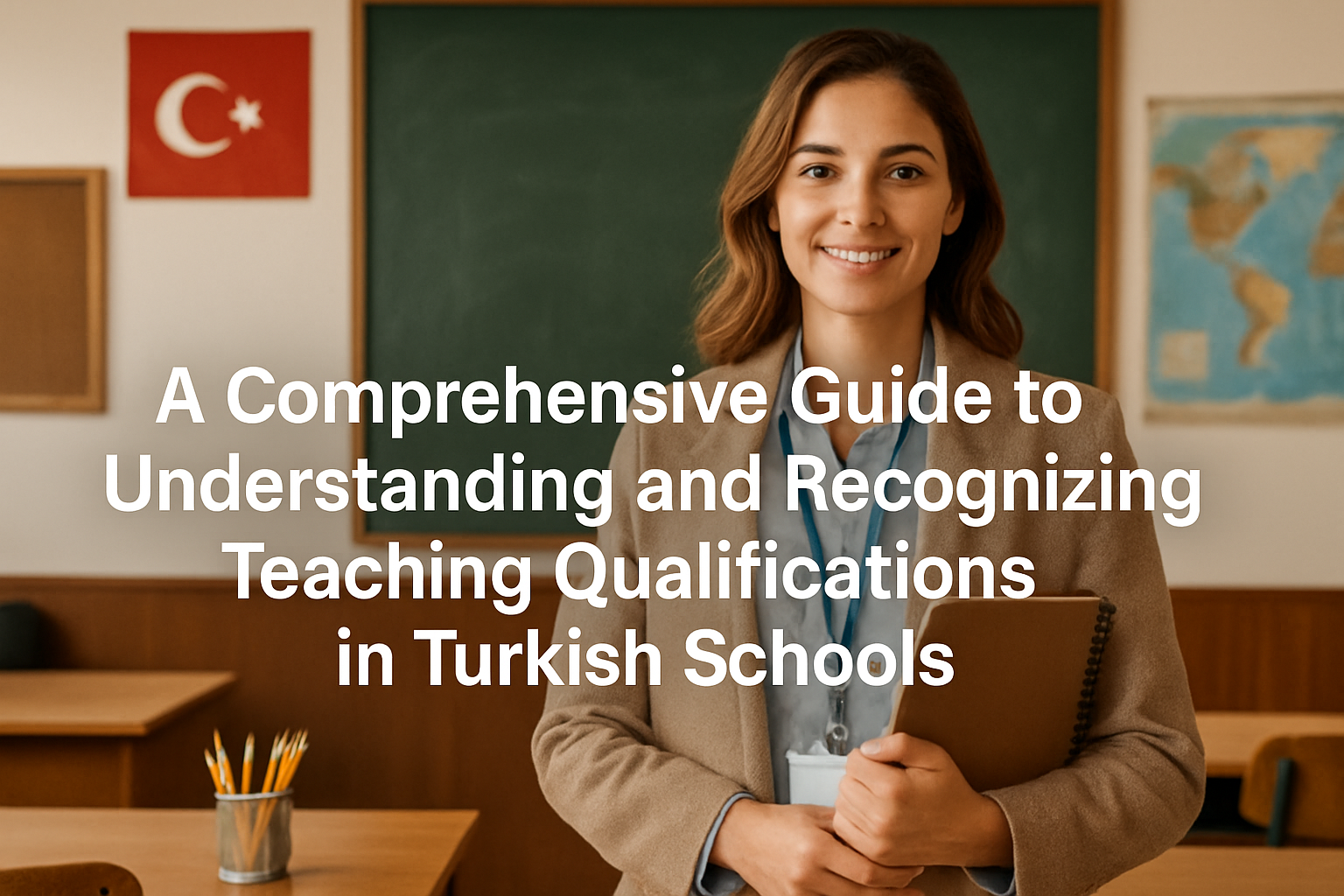Recognizing Teaching Qualifications: Working in Turkish Schools

Moving to a new country brings unique opportunities and challenges, especially for educators. Many expats eye Turkey’s vibrant culture and growing economy and consider teaching as a rewarding career and meaningful way to integrate into the society. Unfortunately, uncertainty around qualification recognition and school requirements often creates confusion. Understanding how your teaching credentials translate and how to navigate Turkish schools will set you on the right path. Here’s a practical guide to recognizing your qualifications and making the most of teaching opportunities in Turkey.
Understanding Teaching Qualifications in Turkey
In Turkey, schools fall into various categories, each with distinct hiring policies. Whether you dream of teaching English in Istanbul, guiding primary students in Ankara, or joining an international school in Izmir, knowing which schools prioritize foreign credentials helps target your job search.
- Private Turkish schools prefer internationally certified teachers for language instruction and some specialized subjects. These schools often value work experience and recognized teaching certificates.
- International schools require accredited teaching degrees, especially for non-language roles. They offer more flexible approaches to foreign qualifications and are familiar with global hiring standards.
- Public schools rarely employ non-Turkish nationals unless participating in government exchange or special programs. These jobs often hinge on bilateral agreements or language assistant roles.
Recognizing these distinctions helps you focus energy where it counts, boosting your chances for a successful placement.
Have Your Documents Ready and Recognized
Turkish schools need evidence of your qualifications. Notarized, translated documents smooth the way through both bureaucratic and institutional hurdles.
- Obtain a notarized copy and sworn Turkish translation of your degree/diploma.
- If applicable, include transcripts and proof of teacher training (such as a PGCE, TEFL, or relevant certificate).
- Request a reference from your previous school, especially if it’s internationally recognized.
- Prepare a detailed CV outlining experience that matches the job you want.
Many private and international schools ask to see an equivalency certificate (YÖK Denkliği) issued by the Turkish Higher Education Council (YÖK). This certificate verifies that your credentials match Turkish standards. Applying for YÖK recognition requires time—sometimes several months—so begin the process as soon as you consider teaching in Turkey.
Navigating Work Permits and Legal Requirements
Legal employment hinges on securing the right visa. For most teaching jobs, schools must sponsor your work permit application as part of the hiring process. Suppose you accept a job at a reputable international school in Istanbul. Your school’s HR team collects your documents and submits your application to the Ministry of Labor and Social Security.
- Keep your passport valid for at least 6 months beyond your intended stay.
- Make digital copies of every required document for easy submission.
- Check local regulations—some provinces require additional documentation or registration.
- Plan for medical tests if requested by your employer or the Turkish government.
This legal clarity helps you avoid costly mistakes and sets up a streamlined onboarding experience.
Presenting Yourself to Turkish Schools
Standing out in the Turkish teaching market means demonstrating your practical skills and cultural flexibility. Focus your application on student-centered results and adaptability.
- Share stories showing how you connect with diverse learners or adapt to new curricula.
- Highlight any experience with bilingual classrooms, educational technology, or international standards.
- Emphasize willingness to participate in school life—clubs, trips, or staff events.
- Show openness to learning Turkish, even if your teaching is in English.
Imagine a primary teacher from Canada shares her success introducing interactive reading circles that improve language development. A secondary science teacher might mention leading robotics workshops, displaying commitment beyond the basic curriculum. These examples resonate strongly with Turkish schools seeking passionate, engaged staff.
Benefits and Opportunities for Expat Teachers
Teaching in Turkey transforms your career and enriches your personal life.
- Competitive salaries, with many schools offering benefits like accommodation or travel support.
- Opportunities to learn Turkish and pursue cultural immersion.
- Valuable classroom experience with internationally diverse students.
- Regular professional development through workshops and conferences.
- Networking opportunities with local and expat teachers strengthening your resume and future prospects.
Many expat teachers love the sense of community, the enthusiasm of Turkish students, and the chance to contribute to academic innovation. Embracing the local lifestyle—enjoying Turkish cuisine, travelling during school holidays, or joining language exchanges—makes everyday living more fulfilling.
Recognizing how your teaching qualifications convert in Turkey is only the first step. When you prepare your documents, approach schools thoughtfully, and embrace the opportunities, you set yourself up for professional growth and an unforgettable adventure in Turkish classrooms.
